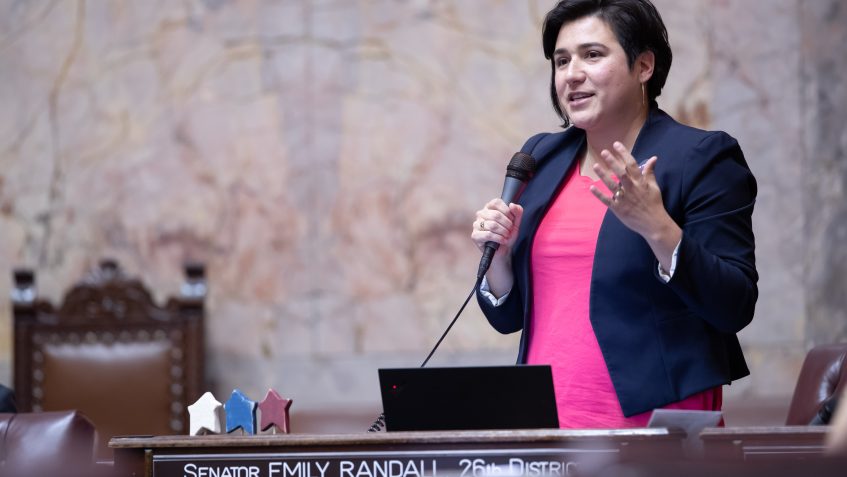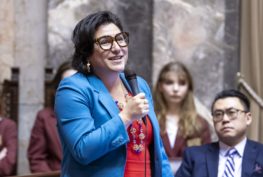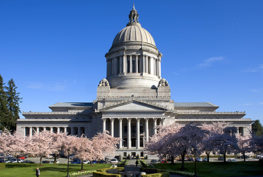From the Key Peninsula News
When I talk to our neighbors in Lakebay, Lake Holiday and Vaughn, I hear over and over that you are worried about health care costs.
Whether it’s high premiums and deductibles, limited networks that don’t include your family doctors, plans that don’t cover the care you need, family members who are out of work and can’t afford coverage on the individual market, or the nagging worry that you’ll lose your care if you lose your job—it’s hard to avoid the stress caused by our broken system.
I take those concerns to heart because my family has been there.
In 1993, when my sister Olivia was born with microcephaly, we didn’t know how long she’d live—or how we’d pay for the care she needed to stay alive. Even though my dad worked at Puget Sound Naval Shipyard and had good health coverage, it wouldn’t come close to covering Olivia’s needs.
When the Legislature expanded Medicaid that same year, we felt a huge burden lifted. We could focus on keeping Olivia healthy and home with us, instead of worrying we’d lose our home. It didn’t solve all our problems, but it did pay for the specialists Olivia saw in Tacoma and Seattle, her many expensive medications, her feeding tube and supplies, her wheelchairs—the care we needed to help her live her fullest, healthiest life. For our family—and for Olivia—Medicaid was a lifesaver.
Ours wasn’t the only family to benefit. After that 1993 expansion, 100,000 more Washingtonians were covered by Medicaid in 1994 than had been in 1992.
We have a lot to be proud of in our state’s history of expanding care. Since 2012, when Washington again expanded Medicaid as part of the Affordable Care Act, 600,000 more people have gained coverage. The uninsured rate in our state decreased from 14 percent to 5.5 percent by 2017.
That’s a huge improvement—changing hundreds of thousands of lives for the better. It means more of us are able to afford checkups, to fill prescriptions for asthma medicine, and to get preventive treatment from our doctors instead of waiting until it’s so bad we have to go to the emergency room.
But we haven’t done enough. There are still nearly half a million Washingtonians without health care coverage. And many families that do have insurance avoid going to the doctor because their premiums and deductibles are so high.
Given the urgency of this problem, I’m supporting immediate action while also working to establish a long-term solution.
Both houses of the Legislature this year have passed a version of our new Cascade Care health plan, which would create a public option for health care coverage. This plan would offer a good benefit package at an affordable price. And it would be available for any Washingtonian to buy into, without affecting those who already have health care through their employers or through Medicare or Medicaid.
This would make good health care more easily accessible and provide some healthy competition for private health care plans.
But just making care more accessible won’t address everyone’s needs. And no family—regardless of their income or financial situation—should go bankrupt or lose their home because they have a child born with special needs, are diagnosed with cancer, or get into a car accident.
That’s why I introduced a Pathway to Universal Health Care this year. This bill isn’t intended just to send a message or to check a box. It’s about taking concrete steps to prepare us for a future where we cover all Washingtonians.
The Pathway bill would bring all the stakeholders into one room—from patients to physicians, health care workers to employers, insurance carriers and hospitals—to hash out a specific plan to provide that coverage. That would put us in position for the next milestone in our proud history of leading the nation in health care coverage: the day we make worries about losing health care a thing of the past.
Sen. Emily Randall, D-Bremerton, represents the 26th Legislative District.



